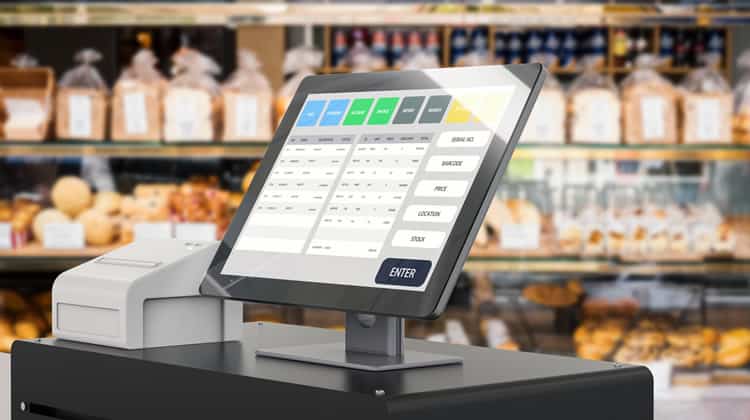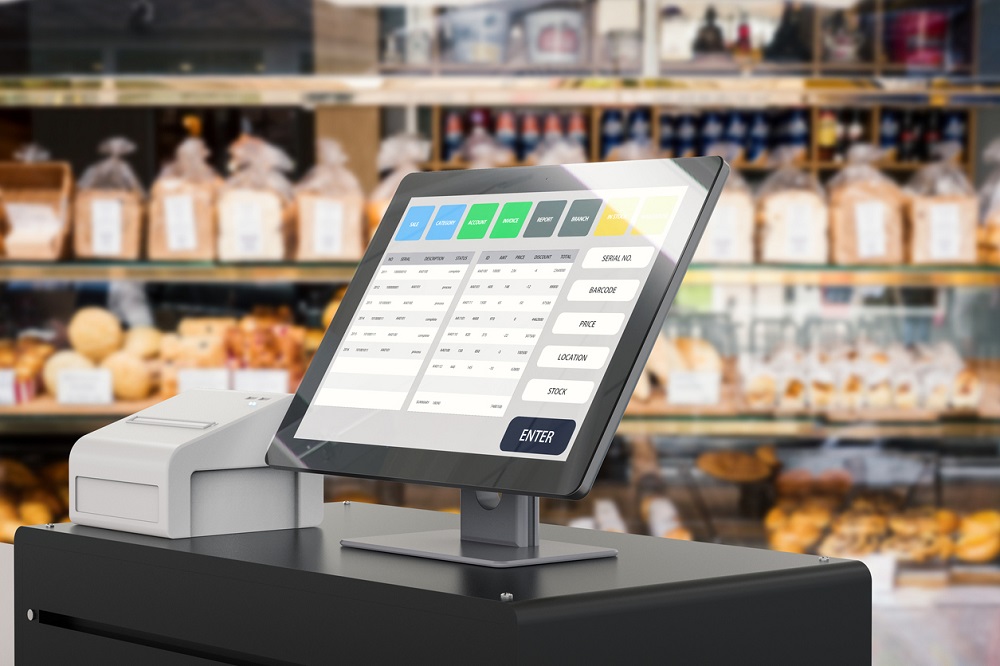POS systems are hardware and software that enable you to make sales, accept payments, verify customers, whether you want to open a retail store, pop-up store, or sell at events, you need a POS system to accept payments and sell in person, so how do POS systems develop the business?, The answer in our article for today.

Operation Mechanism of POS Systems
The POS system records the product details of the purchased item, tracks its details, and provides feedback about the order, usually in the form of the total cost of order to the customer and sales reports to the store owner, to serve both the customer and the owner, POS systems include various software and types of hardware to accomplish the task, these include barcode scanners, cash drawers, and computer monitors.
POS Program
The POS software is the core component of POS systems, which is a digital technology platform that complements purchasing transactions, where software can be cloud-based or based on the local server; However, cloud-based software is more common among small business owners due to its usability, affordability, security and convenience.
Cloud-based POS systems allow you to access your sales data from any device - even those off-site - as long as you have Internet access, and although local server-based software provides more stability, it's more expensive and usually enterprise-oriented.
Characteristics of POS systems
Point-of-sale systems provide business owners with a range of features and functions that facilitate their sale and purchase, including:
- POS systems enable you to analyze sales data, see how well all items on your shelves are sold, and adjust purchase levels accordingly.
- POS systems allow you to track your daily cash flow, monitor all cash register adjustments and employee changes throughout the day.
- You can keep a sales record to help adjust your purchase decisions according to seasonal purchase trends.
- POS systems facilitate retail package in-store sales. Manage inventory, manage efficiently.
- You can improve pricing accuracy by integrating barcode scanners and credit card licensing with POS systems.
- POS systems can be used as part of the most sophisticated IT system, linked to back office inventory control, demand, and customer relationship management applications.
Benefits of POS systems
POS systems help in effective performance operated through industry-specific tools while tracking and processing customer transactions. POS systems also provide many benefits, which contribute to business growth, some of which are as follows:
1. Increase in posts
POS systems consist of many hardware, software, levels of sophistication and complexity. However, even the simplest POS systems, which include an electronic cash register and sales data coordination program, allow companies to increase their functions. Through modern POS systems, companies can improve their flow and functionality.
2. Streamlining sales from multiple locations
Mobile POS systems enable you to conduct business and sell products from multiple locations - while continuing to be streamlined, by investing in mobile POS systems, you can expand the reach of your business and products, selling to consumers from locations other than the physical store.
Portable POS software - along with a simple scroll device - can effectively convert your smartphone into a retail POS system, allowing you to accept remote transactions, thereby expanding business operations.
Portable POS systems can be useful for accepting credit cards and selling in exhibitions, craft exhibitions and farmers' markets.
3. Real-time data tracking
POS systems simplify sales business data management, where you can record, track and access data in real time quickly, efficiently and securely. Instead of requiring you to transfer data from one system to another, a good point of sale will be integrated and provide real-time dashboards to watch sales performance and metrics at any moment.
4. Improved inventory control
Modern POS systems consist of a database that enables traders to track the items they have through advanced inventory data stored in POS software, Retailers can use their POS systems to search for past transactions tracking bestselling items, rearranging products when inventory is down Here you need POS systems that integrate with your inventory system or provide centralized inventory management.
5. Greater control over staff management
POS systems can be an effective way to track sales of individual employees. In addition to monitoring sales teams' performance, employees can use these systems to track their sales statistics. By tracking sales statistics, employees become more aware of their personal sales goals and objectives.
6. Tax Administration
Retailers' advanced point-of-sale systems calculate the tax on your behalf, providing simple tax management and thus saving you time, this will help you reduce errors as well.
Types of POS systems
Retail point of sale systems are varied, and each type is used depending on the type of work, here are the most important types of common point of sale systems:
Server Point of Sale Systems
Server retail point systems are systems in which data collected within the company is stored. This type of POS systems is considered expensive in terms of setup and monthly maintenance charges.
Cloud POS Systems
Using the cloud-based systems to which we referred in the article, sales data is stored online instead of an on-site server, just by installing your chosen point of sale software on your devices, you will have access to your data as long as you have Internet access.
Hybrid POS Systems
Hybrid POS systems have features of local and cloud systems, it's an ideal choice if you want to get the best out of both sides, hybrid or mixed POS systems are useful for businesses with physical stores and online stores.
Conclusion
Innovative solutions quickly overcome traditional ways, nowadays, where we no longer have to rely on cash and its different units to carry. Technological transformation has made working life and economic life easy to use. Including POS systems, which will help you make your business more cost-focused, save you time, can improve your relationships with customers, make your business more flexible and mobile, and record inventory data and vital revenue.

Add New Comment